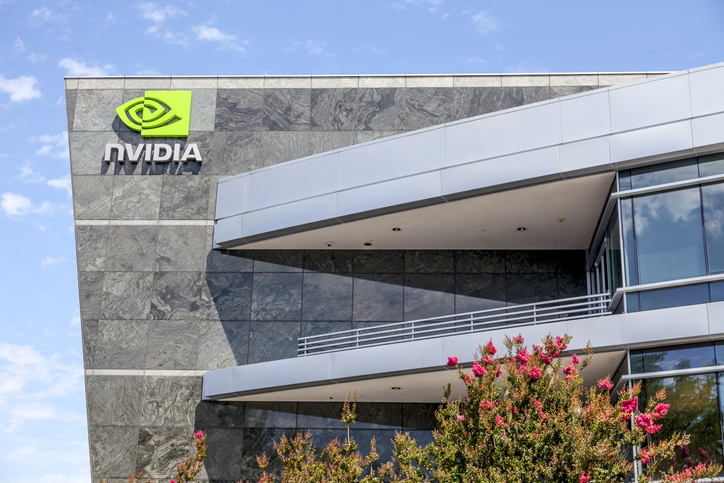Artificial intelligence: is the hype real, and how to invest in the winners
11th April 2023 10:33
by Sam Benstead from interactive investor
The launch of ChatGPT shows that computers are getting even smarter – but is it worth investing in the booming world of AI? Sam Benstead weighs up the pros and cons.

Breakthroughs in artificial intelligence (AI) are coming thick and fast this year, with the new tools – dubbed the fifth industrial revolution – expected to disrupt office jobs in the same way that industrial machinery disrupted factory jobs in the 19th and 20th centuries.
Leading the wave of progress is OpenAI, backed by Microsoft, whose ChatGPT software can interact with humans intelligently via text, and even offer solutions to computing coding problems. Google has launched a rival called Bard, while Meta (formerly Facebook) is also working on the same technology.
- Invest with ii: Top ISA Funds | FTSE Tracker Funds | Open a Stocks & Shares ISA
According to some, these “large language models”, or LLMs, could disrupt a huge swathe of white-collar jobs, leading to a number of big investment winners and losers. Goldman Sachs says 300 million jobs could be affected, while Bank of America says that AI “is about to revolutionise everything”.
On the other hand, technology breakthroughs have not always delivered on their promises and bubbles have formed in the past, such as with cryptocurrencies. New technology can also create new jobs and increase productivity in an economy, so Goldmans Sachs’ prediction may be far-fetched.
This is our guide to artificial intelligence and how to invest successfully in it.
What is artificial intelligence?
Artificial intelligence, defined by tech consultancy Accenture, is “a constellation of many different technologies working together to enable machines to sense, comprehend, act, and learn with human-like levels of intelligence”.
Terms such as “machine learning” and “natural language processing”, which refer to a computer’s ability to learn from a data set and understand written language, are different subsectors of AI, according to Accenture.
There is also a split between “narrow” and “general” AI, referring to programme that can do one task, such as predict the weather, or lots of tasks. Artificial General Intelligence (AGI) refers to AI tools that can solve any type of problem.
- The share Terry Smith has sold after less than a year
- The ‘unique’ investment that protects against inflation
Who are the leading players?
America’s largest technology companies are building the leading AI systems for general use, but many other companies are making specific tools for their own business areas, or harnessing big tech’s operating systems to build new AI-powered software.
Microsoft reportedly owns 49% of OpenAI following a $10 billion (£8 billion) investment this year, and uses its AI tools on its cloud computing platform and is integrating them into its Office suite.
Alphabet, which owns Google, is also a leading player with its London-based DeepMind division, which has made breakthroughs in healthcare and gaming, and also offers AI tools to its cloud customers.
Google and Microsoft are regarded as the pioneers in AI. They are the top two stocks in the Sanlam Global Artificial Intelligence fund, managed by Chris Ford.
He says: “They are good at different things. Alphabet has created its own AI internally, while Microsoft has been happy to partner with other companies, such as OpenAI.
“Alphabet was the trailblazer but brought regulatory scrutiny so has been treading carefully. Alphabet has been seen to be flatfooted due to OpenAI’s popularity. This could be true, but we do not know for sure yet. We think Alphabet’s AI is a good as OpenAI’s.”
- What is the metaverse and should you invest in it?
- Meet the ‘new FAANGs’ the pros are getting excited about
- ii view: AI stock Nvidia in rally mode
Outside Big Tech, Ford says Deere & Co, best known for making tractors, is using AI to build autonomous harvesters which will cut costs and increase crop yields.
Another key area driving AI forward are computer chip companies that AI software runs on, with Nvidia the key stock to watch.
Ford says: “Nvidia is the most important company in the AI space. All roads lead to Nvidia – they manufacture the computer chips that leading AI system are developed and implemented on, and they run the operating platforms. Nvidia is still not well understood and not as broadly held by investors.”
Bank of America says the following shares are also AI winners: computer chip manufacturers ASML and TSMC; software firms Adobe, SAP and Palantir; and tech firms Apple, Meta and Baidu.

Will AI actually make companies money?
The clear answer is yes, according to researchers. Consultancy PwC estimates that AI could boost the world economy by up to $15.7 trillion (£13 billion) by 2030. The global AI market, which includes software, hardware and services, could reach $900 billion by 2026, according to International Data Corporation, a market researcher.
Bank of America says many sectors will benefit, from tech hardware to software and cybersecurity companies.
The research group said: “First, semiconductors are a likely beneficiary because the training of these LLMs requires significant computing power. To illustrate this point, the next generation of this technology, GPT-4, could require around 100 Nvidia DGX A100 multi-GPU servers, which cost $200,000 each.
- Scottish Mortgage responds to three big concerns investors have
- Scottish Mortgage: ‘2022 was humbling – but the trust is now cheap’
“Second, as data continues to grow at an exponential rate, more data centres are needed to store that data. Third, since cyberattacks are more likely, the cybersecurity sector is likely to benefit, particularly email security, identity security and threat detection. Finally, software companies are likely to benefit due to the increased need to develop ChatGPT-like technology to support new products.”
According to Accenture, AI could double annual global economic growth rates by 2035. It says AI is likely to drive this in three different ways: “First, AI will lead to a strong increase in labour productivity (by up to 40%) due to automation. Second, AI will be capable of solving problems and self-learning. Third, the economy will benefit from the diffusion of innovation.”
How to invest – and should you?
Helen Jewell, deputy co-chief investment officer of BlackRock Fundamental Equities, says after last year’s sharp valuation reset, attractive entry points across the technology sector have now opened up.
“Quality companies in this area have management teams capable of leading in a new era of artificial intelligence, while also controlling costs, now that cheap money isn’t readily available to finance growth,” she said.
- Day in the life of a fund manager: M&G’s Eva Sun-Wai
- Ian Cowie: the key questions facing Scottish Mortgage
There are a number of funds specialising in companies that are involved in AI. These include active funds Sanlam Global Artificial Intelligence and Polar Capital Automation & Artificial Intelligence, as well as exchange-traded passive funds such as L&G Artificial Intelligence UCITS ETF and the WisdomTree Artificial Intelligence Ucits ETF.
These trackers funds have strict rules for what constitutes a company involved in artificial intelligence, such as the share of revenue that directly comes from AI, which means that they tend to focus on smaller rather than larger companies, which can increase risk. This means that Microsoft does not make it into the L&G tracker, despite being one of the leaders in AI.
Broader technology funds, such as Allianz Technology Trust or Scottish Mortgage, are also exposed to the theme of artificial intelligence, and even a simple S&P 500 tracker, such as the Super-60 rated Vanguard US Equity Index, is involved in the theme through top 10 positions in Nvidia, Microsoft, Alphabet, Amazon and Tesla.
These articles are provided for information purposes only. Occasionally, an opinion about whether to buy or sell a specific investment may be provided by third parties. The content is not intended to be a personal recommendation to buy or sell any financial instrument or product, or to adopt any investment strategy as it is not provided based on an assessment of your investing knowledge and experience, your financial situation or your investment objectives. The value of your investments, and the income derived from them, may go down as well as up. You may not get back all the money that you invest. The investments referred to in this article may not be suitable for all investors, and if in doubt, an investor should seek advice from a qualified investment adviser.
Full performance can be found on the company or index summary page on the interactive investor website. Simply click on the company's or index name highlighted in the article.